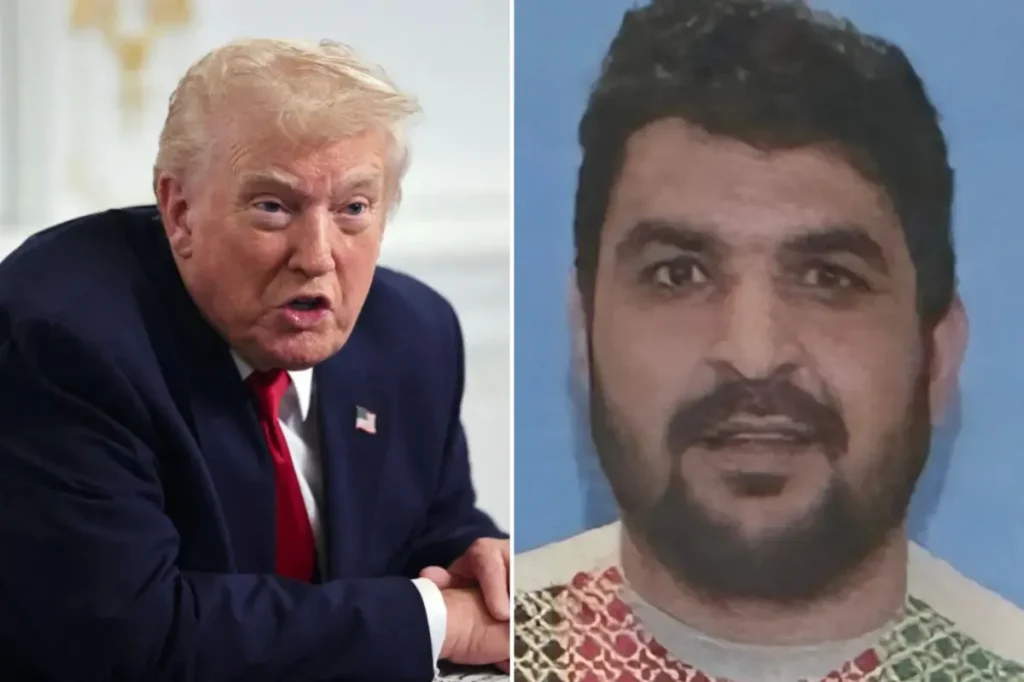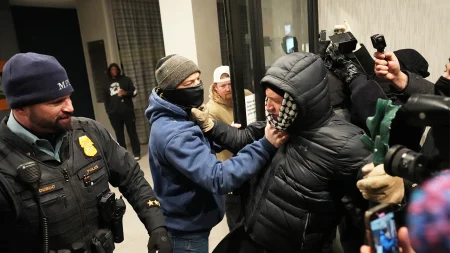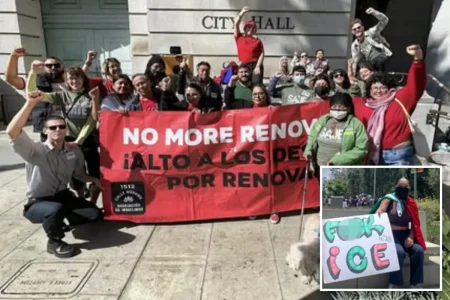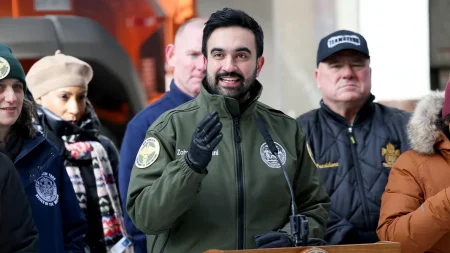National Tragedy: Trump Considers Deporting Family of Afghan Refugee in Soldier’s Death
In a somber revelation that has rippled through the nation, President Trump disclosed on Thursday that his administration is examining the possibility of deporting the family members of Rahmanullah Lakanwal, the 29-year-old Afghan refugee accused of a deadly attack near the White House. “We’re looking at that right now,” the President told reporters when questioned about potential deportation plans for Lakanwal’s wife and at least five children who currently reside in Bellingham, Washington. “We’re looking at the whole situation with family. It’s a tragic situation.” This statement came alongside the heartbreaking announcement that 20-year-old West Virginia National Guard soldier Sarah Beckstrom had succumbed to her injuries, transforming what was already a shocking incident into a national tragedy that has sparked intense debate about immigration policies, national security, and the human cost of violence.
The attack occurred Wednesday afternoon just blocks from the White House, where Lakanwal allegedly opened fire on National Guard troops patrolling the area. Both Beckstrom and fellow guardsman Andrew Wolfe, 24, were struck in the ambush, with Beckstrom suffering critical wounds to her head and chest. In a swift response that likely prevented further casualties, a third guardsman rushed to the scene and engaged Lakanwal, leaving the suspect wounded but alive. The sudden violence in broad daylight near the seat of American government has left many questioning how such an attack could happen, especially given Lakanwal’s background as someone who reportedly fought in Afghanistan before coming to the United States under the Biden administration’s Operation Allies Welcome program in 2021, following America’s chaotic withdrawal from Afghanistan.
The human dimension of this tragedy extends far beyond political considerations. Beckstrom, described by President Trump as “an incredible person, outstanding in every single way,” fought for her life following emergency surgery but ultimately passed away Thursday evening. The President made this solemn announcement during what was intended to be an uplifting Thanksgiving call with military units. “She’s no longer with us. She’s looking down at us right now,” Trump stated with noticeable emotion, his words reflecting the nation’s collective grief. Wolfe, the second injured guardsman, continues to receive medical care, while the impact on both families—and on the National Guard community—remains immeasurable. These young soldiers, serving their country on domestic soil, never expected to face deadly violence while on patrol in the nation’s capital.
Legal proceedings against Lakanwal are already in motion and will now intensify following Beckstrom’s death. Initially facing three counts of assault with intent to kill and criminal possession of a weapon—charges carrying up to 15 years imprisonment—the suspect will now face much more serious consequences. US Attorney for the District of Columbia Jeanine Pirro had previously indicated that first-degree murder charges would be pursued if either soldier died from their wounds. Attorney General Pam Bondi has since confirmed that federal prosecutors will seek the death penalty against Lakanwal, signaling the administration’s determination to pursue the most severe punishment available under law for what they view as an act of terrorism on American soil.
The question of what will happen to Lakanwal’s family has become a lightning rod for broader discussions about immigration policy and national security. The president’s comments about potentially deporting the suspect’s wife and children, who came to America as refugees, reflect complex tensions between security concerns and humanitarian considerations. While many Americans express sympathy for innocent family members who may have had no knowledge of or involvement in Lakanwal’s alleged actions, others question the vetting processes that allowed the family’s entry and whether potential security risks remain. This family now finds themselves in an extraordinarily difficult position—having fled Afghanistan only to face possible deportation following actions allegedly taken by the husband and father, actions that have forever altered multiple American families.
As the nation processes this tragedy during what should be a season of gratitude and unity, fundamental questions arise about the balance between compassion and security, between America’s tradition as a refuge for those fleeing persecution and its commitment to protecting its citizens. The death of Sarah Beckstrom—a young woman who dedicated herself to serving her country—represents not just a personal and family tragedy but a moment that challenges Americans to consider what values they prioritize and how these values should shape policy. Meanwhile, the wounded guardsman, the responding officer, the families of all involved, and even Lakanwal’s children find themselves unwitting participants in a national conversation about violence, immigration, and justice. As legal proceedings unfold and policy debates continue, the human dimension of this tragedy reminds us that behind every headline are real lives forever changed by moments of violence that ripple outward through families, communities, and ultimately, the nation itself.











